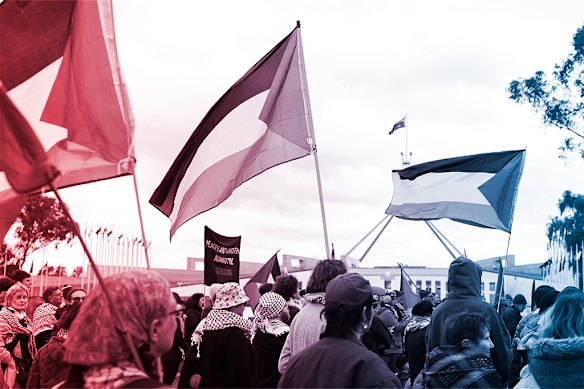
A recent poll indicates a split among Australians regarding the recognition of a Palestinian state, with a significant portion of the population divided over the timing and conditions for such a decision. Approximately a quarter of voters support Australia recognizing Palestine at the upcoming United Nations General Assembly in September 2023, irrespective of the governing authority in Gaza. In contrast, a third of respondents advocate for delaying recognition until specific conditions are met.
Polling conducted exclusively for this publication revealed that while public sympathy has increased towards Gaza, 36 percent of Australians do not believe that recognizing Palestine would influence the broader situation in the Middle East. This contrasts with 25 percent who feel that such recognition would have a positive effect. Among Labor voters, opinions are closely divided on the recognition issue, reflecting a broader national uncertainty.
Prime Minister Anthony Albanese announced last week that Australia would support the recognition of Palestine during the UN meeting, underscoring commitments from Palestinian Authority President Mahmoud Abbas. Abbas has pledged to hold elections soon and to exclude Hamas from Palestinian governance. Albanese also noted that a resolution from the Arab League, which calls for Hamas to demilitarise and relinquish its claim to govern Gaza, played a crucial role in the decision.
The survey results reveal that 24 percent of respondents support the notion that “Australia should recognise Palestine in September’s UN meeting regardless of who is in power.” In contrast, 32 percent believe recognition should wait until Hamas is removed from power or until Palestine acknowledges Israel’s right to exist. A further 44 percent oppose any change to Australia’s current policy of non-recognition of Palestine.
Among Labor voters, the sentiment is almost evenly split regarding recognition in September versus waiting for certain conditions to be fulfilled. While 43 percent of Labor voters oppose altering the status quo, the party remains internally conflicted about the path forward on this issue.
The Palestinian Authority, primarily led by the Fatah party under Abbas, has recognized Israel’s right to exist peacefully since the 1990s and has officially denounced terrorism. Conversely, leaders of Hamas have consistently rejected recognition of Israel but have shown a willingness to accept a Palestinian state existing alongside Israel.
This division in public opinion reflects broader geopolitical tensions and the complexities surrounding the recognition of Palestine. As the September UN General Assembly approaches, the Australian government faces mounting pressure to navigate these sensitive issues while considering both international relations and domestic sentiments.







